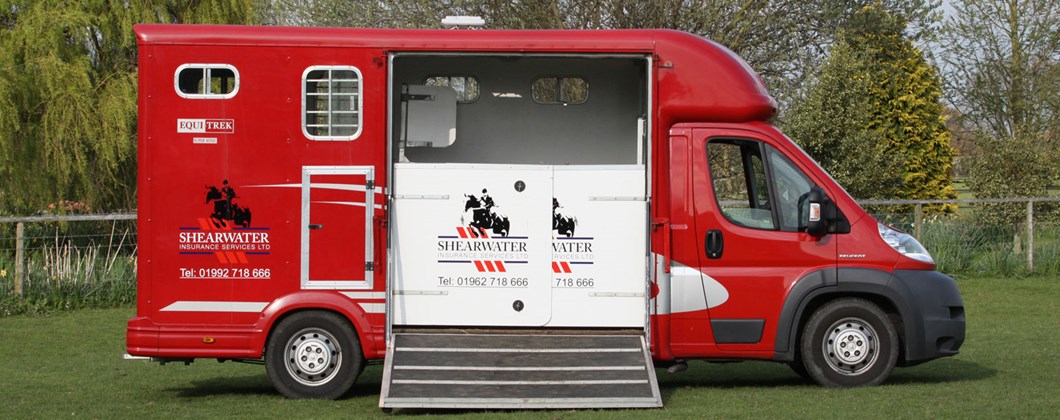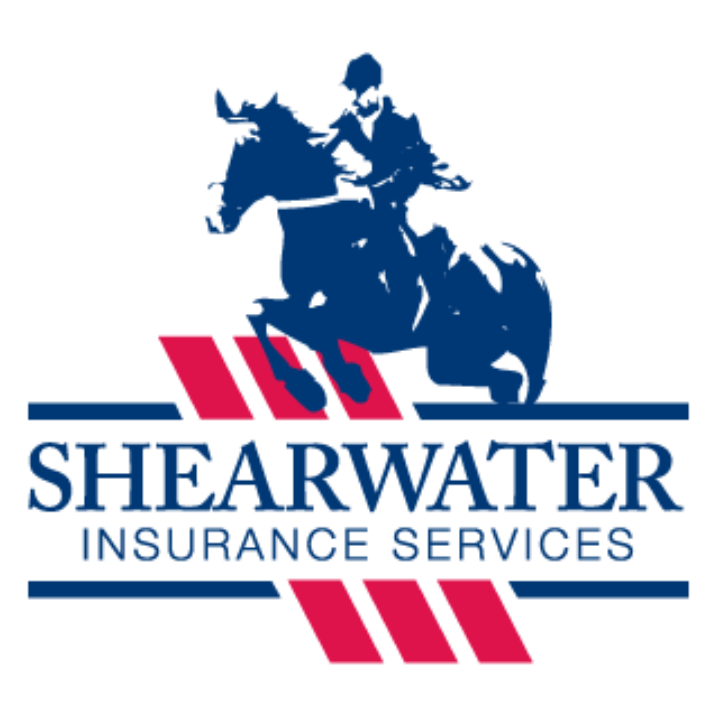Horsebox Insurance Explained

If you have a lorry or trailer to transport your horse then insurance is an important matter to you. It can be confusing as to what is included in your policy so the team at Shearwater are on hand to help you out.
What kind of insurance do I need for my horsebox?
Horsebox insurance varies however the majority of people choose to take out a fully comprehensive policy. Shop around to ensure your cover fits all of your requirements and look at the excess you will be paying to ensure it is affordable in the event of a claim. It is also worth looking carefully at your yearly mileage as insurance companies offer something called a ‘limited mileage policy’ which means if you are doing less than 5,000 miles a year your premium could drop to as much as half of the cost.
Do I need insurance for my trailer?
You don't actually have to have a separate policy for a trailer as during use, when it is attached to a car that is insured sufficiently, your trailer is covered for third party liability only – which means if there is an accident any damage to property or other vehicles you will be insured. However, this will not cover you for theft or damage to the trailer itself so it is always advisable to take out a separate insurance – usually at a minimal cost – to protect you in the event that it is stolen or involved in an accident.
Trailer insurance will not automatically include breakdown cover, however many companies do offer it as an add-on. Look for a policy that gives total breakdown cover in the UK, including emergency road assistance, long distance recovery and home breakdown for trailer owners. In the event of a breakdown that couldn’t be repaired – this policy would organize alternative transport for the horses. This is something you should always check when taking out a breakdown cover.
Can I take other people’s horses in my equine transport?
In the event that you wish to transport other people’s horses – providing there is no exchange of money other than say a share of diesel costs, this will still be classed as social, domestic and pleasure use so you will be protected. If you do wish to charge a fee above the maintenance costs you will need to contact VOSA to discuss whether you need a transporters licence and you will then need to review your policy with your insurers to ensure the correct level of cover is in place. It may mean that you will need Business or Hire & Reward Use.
Do I really need separate breakdown cover?
The services that you receive from you breakdown organisation will depend on the company you use and the level of cover you take out. In the case of transporting horses, or any livestock you are always advised to ensure you have as comprehensive a cover as possible – and always check with the company that they will assist with the horses should they require alternative transport. For this reason it is beneficial to use a specific company who will be knowledgeable and sympathetic to your problems – should the occasion arise. It is also worth ensuring that anyone over the age of 25 is covered to drive the vehicle – this should not cost any more to do and in the event that you are unable to drive will make sure you are fully protected.
When do I need Business Use?
You may only ever move your own horses, but if there’s some financial incentive involved, you’ll need a Business Use policy. This generally applies to trainers and professional riders, who will take their horses out to compete for significant prize money. But significant is the key word, here: taking your horses out needs to contribute to your business in a substantial way. If you just occasionally pop out to your local competition venue for a class or two and win your entry fees back, you likely won’t need this level of cover.
In what situation would I need a Hire & Reward policy?
If you ever find yourself moving someone else’s horse for payment, you’ll need a Hire & Reward policy. This isn’t limited just to transporters – it’s also valid for livery yard owners or similar if they use their lorry primarily in this capacity. This policy protects the lorry itself and does provide some cover for the horses inside it, but it’s generally wise to top it up with a Care, Custody, and Control policy. This covers you in case anything should happen to your charge, allowing the horse’s owner to claim for damages and vet’s bills.
I want to hire my lorry out to make some extra money, what insurance do I need?
Self-hire lorries, are an increasingly common way for occasional travellers to get out and about without racking up unnecessary extra expenses. But for the owners of these lorries, it’s crucial to ensure that the correct coverage is in place, rather than just a bog-standard business-use policy. Self-hire insurance requires a specialist policy, so speak to your insurer to find out what’s available.
Do I need a CPC to drive a horsebox?
A Certificate of Professional Competence, or CPC, is an additional certification designed for professional drivers of lorries over 7.5 tonnes. You’ll need a CPC if you drive a lorry in any sort of professional capacity – for example, if you transport someone’s horse for them for payment, or if the use of your lorry represents a significant part of your business. Professional riders generally need to ensure they have a CPC – after all, without a lorry, they can’t compete. As such, their lorry is considered essentially connected to their income, and that makes them a professional driver in the eyes of the law.
You’ll also likely need a CPC if you’re under 21 and want to drive a lorry with a payload of 7.5 tonnes or higher. In this case, the CPC effectively fills the gap created by a lack of on-the-road experience.
The fine for not holding a valid CPC is reasonably hefty at £1,000, but the good news? You only need to top up your training every five years once you’ve got it.
